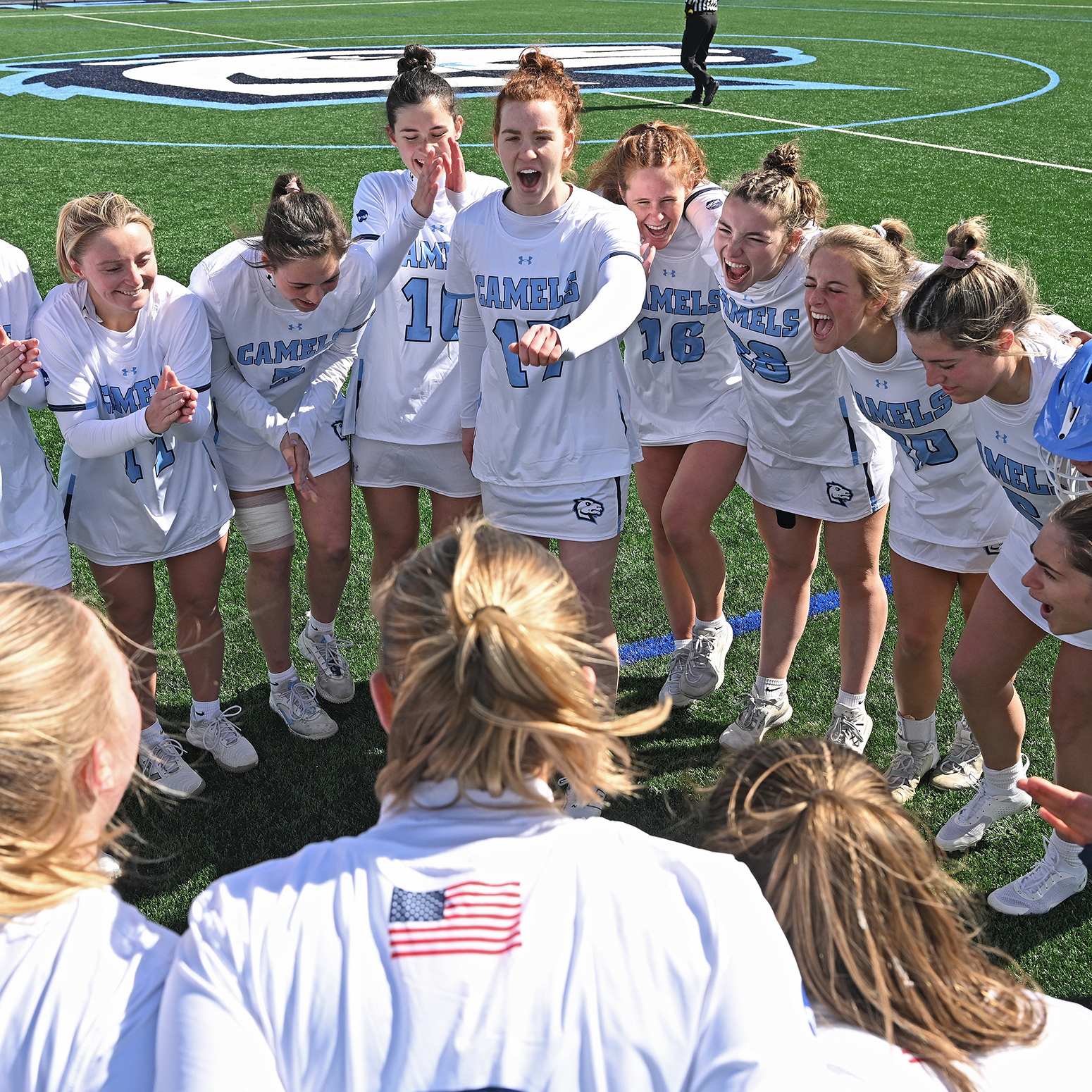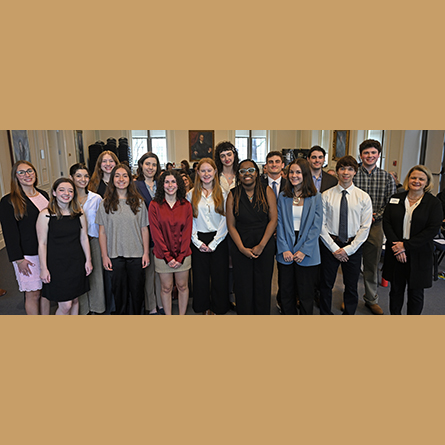
‘Founders Day,’ a satirical political slasher by filmmaker Carson Bloomquist ’18, hits theaters everywhere
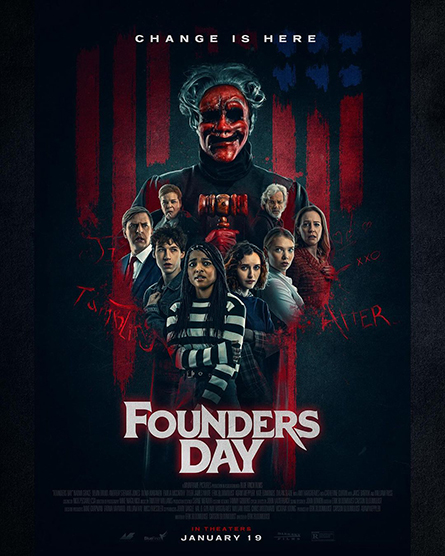
Carson Bloomquist ’18 has Connecticut in his blood. Which is fortunate, because he’s spilling an awful lot of it onscreen in the new satirical political slasher Founders Day, releasing in theaters everywhere Jan. 19.
In the film, a small town finds its already contentious mayoral election turned up to 11 when a teenager is murdered. Soon, a figure in a black judge’s robe wearing a two-faced blood-red mask stalks the town. Wielding a gavel with a knife hidden in its hilt, the killer starts taking down targets on both sides of the political divide.
While Bloomquist started his film career at Conn, making the limited series The Cobblestone Corridor alongside his brother and frequent collaborator, Erik Bloomquist, in 2015, Founders Day represents the duo’s biggest project to date.
Recently, Bloomquist sat down for a Q&A with Connecticut College’s Tim Stevens ’03 to talk about the new film and his career.
Tim Stevens ’03: This is always an annoying question, but how would you describe this film to someone who only knows the title?
Carson Bloomquist ’18: I’d say it’s a political satire/murder mystery with both classic and modern influences. It’s basically about a small town in the middle of a mayoral election. There’s a tragedy and then people start pointing fingers. Chaos ensues.
TS: Could you speak to some of those influences?
CB: Oh, for sure. A lot of modern-day slashers—Scream was a big film for my brother and me. It introduced us to a wealth of horror films that we then saw for the first time. Founders Day, in many ways, is a love letter to those formative slasher films of our youth.
TS: While your brother typically directs and sometimes appears on screen, you co-write, co-produce and co-edit the films you make together. What’s it been like working with him so closely and consistently over the years? Has the process changed as you both have grown and changed?
CB: Erik and I have been doing this for years. We were kind of those prototypical little kids with camcorders, making home movies. Then, in high school and college, it developed into more professional shorts and other projects.
We’re fortunate that we have somewhat of a hive mind with these kinds of things. We complement each other well and trust each other. In pre-production, production, post-production—we’re consistently cultivating this vision we had. And at each step we are effectively setting ourselves up for the next through post-production.
TS: All of that said, you did attend rival NESCAC schools. We don’t have to get into where he went, but do you ever have to remind him “Camels rule”?
CB [laughs]: Whenever we are on either campus or around fellow Camels or Bantams, we will kind of put on a show of duking it out, but it is all just playful.
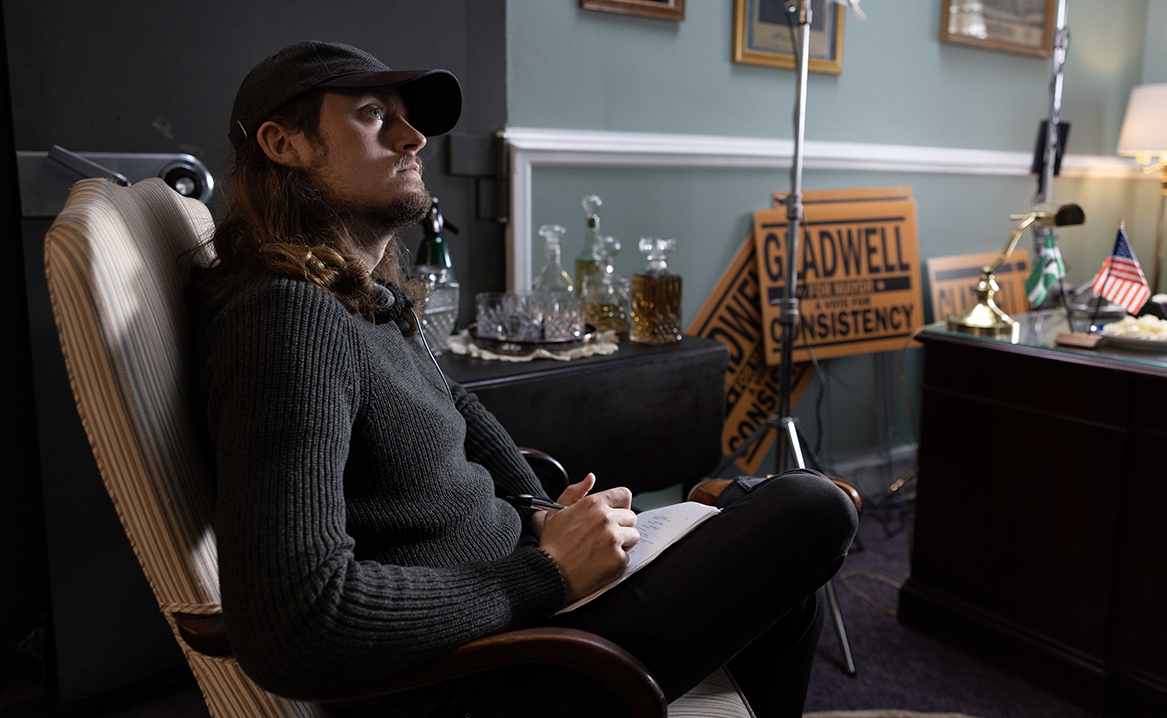
TS: You mentioned in other materials you grew up in a small town in Connecticut.
CB: Newington, yes, that’s right.
TS: OK, so here’s where things get weird. Not only did you and I go to the same college, but we apparently grew up in the same town and both went to Newington High School.
CB: Oh wow, funny. Newington was a great place to grow up and we have a strong connection to a lot of our teachers. We just have a fond relationship with the academics here.
TS: I noticed you include a lot of Connecticut locations in your filming. Can people expect to see some similar geographical nods in Founders Day? And, to broaden the lens some, how does growing up in a small-ish town in New England inform this film?
CB: Founders Day was shot in New Milford and the surrounding areas. Us growing up in small-town Connecticut and spending time in Newington and other small towns like it absolutely feeds into the sort of the sensibilities we tackle within our projects.
I like Founders Day because I think it’s a very current small-town story. It’s both a love letter to and satire of small-town politics.
TS: All right, let’s get to more serious things. By most metrics, Founders Day is your biggest movie to date. How was it to ramp up and take on that challenge?
CB: What’s interesting is it started as a concept trailer, basically the very first thing we made in a more professional sense. We had this idea for a small-town murder mystery set amid a town festival. We thought, in our naivety, that as soon as we did that someone would come knocking and we’d be able to make it immediately. Then, reality hit.
But we found ourselves using the momentum we had behind the trailer to move into some other projects. Each film grew in scope while we tried to build toward getting to do Founders Day. Right after our last film, She Came From the Woods, we realized we felt equipped, finally.
When we shot in November of 2022, it had been like a 10-year span since we made the trailer. But we were able to close the circle and fulfill that concept trailer in a new way, adding some modern influences and stylistic choices that we think make the film better.
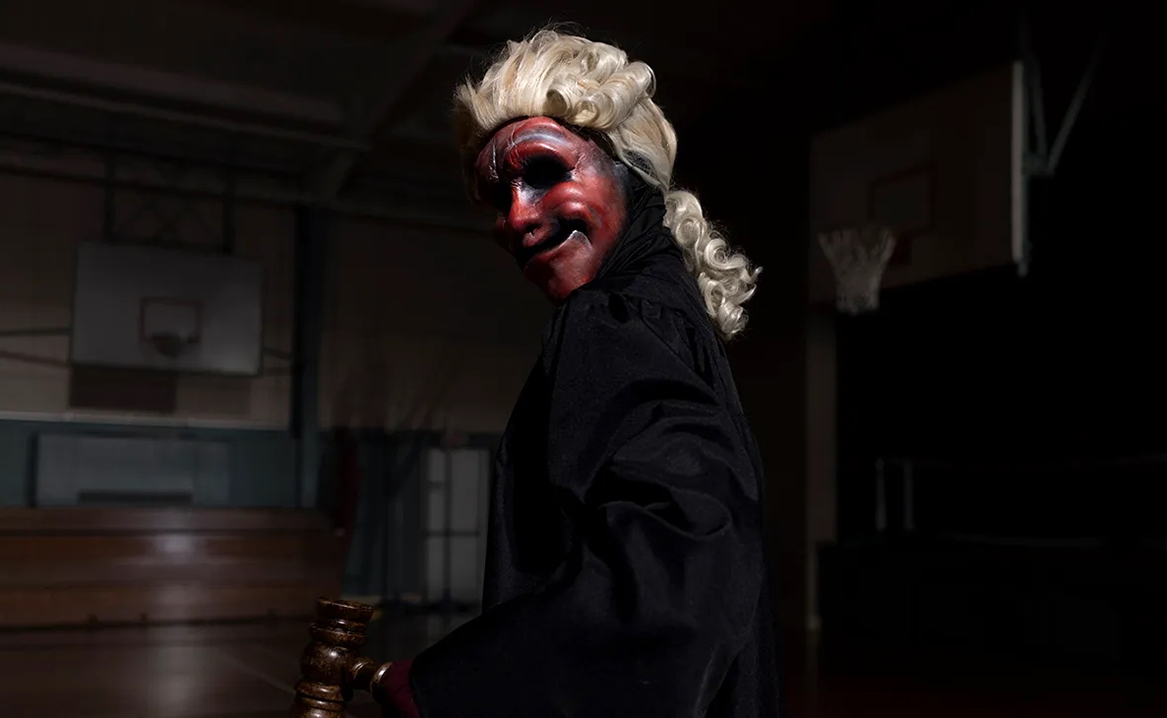
TS: Connecticut College’s Film Studies Department has gone through a pretty impressive evolution and Conn recently opened the new Stark Center for the Moving Image in the Liberal Arts to house the growing program. Looking back, how did your time in the department influence you?
CB: It reinforced my passion for filmmaking, and I’m happy to have ongoing communication with both Professor Ross Morin and Professor Nina Martin. I’m very curious to see the new Stark Center!
TS: And after graduation, what inspired you and made you feel ready to jump into filmmaking?
CB: Well, before graduation we did Cobblestone Corridor, which was based on a short we had made right after the Founders Day concept trailer. Then the summer before my senior year, we actually shot our first feature, Long Lost. That was in post about the time I was wrapping up school. It felt like a good jumping-off point to keep going. I think our biggest asset is our momentum, which has allowed us to connect to our continued collaborators. That’s given us a boost to put the pedal down and keep making a go of it.
TS: You’ve touched on how making Founders Day a decade after you first conceived of the idea is like closing a loop. With that project finally put to proverbial rest, do you have ideas where you’re going next?
CB: We have a number of ideas, seeds of ideas, potential steps we want to take. Things we want to do in the horror thriller genre and beyond. We also just have a real love of coming-of-age films. There are all types of genres that we’d love to tackle.
We also have one other non-horror release that we produced that will be coming out shortly. It’s a musical comedy ghost story with a very earnest kind of golden age feeling, but is still set in the present day. I think it shows another side of what we can do.
We’ll see where it all takes us, but we’re excited and optimistic.
